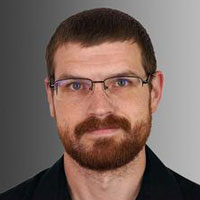ENE Research Seminar: Enhancing Engineering Education through Reverse Engineering
| Event Date: | January 23, 2025 |
|---|---|
| Speaker: | Benjamin Manning |
| Type: | Research Seminar |
| Time: | 3:30-4:20 pm |
| Location: | WANG 3520 |
| Open To: | Graduate and undergraduate students, staff, and faculty with an interest in educating engineers |
| Priority: | No |
| School or Program: | Engineering Education |
| College Calendar: | Show |
For the high-flex option, register in advance. You will receive a confirmation email containing information about joining the meeting.
Abstract
Reverse engineering serves as a powerful educational tool, bridging theoretical concepts and practical applications to enhance student confidence and interest in electrical and computer engineering (ECE). By engaging in hands-on, exploratory learning, students build foundational knowledge, technical skills, and motivation to pursue personal projects and career development. An experimental lab course was conducted to observe how reverse engineering impacts student confidence and interest in ECE fundamentals. A literature review was also developed to contextualize the integration of reverse engineering into engineering education, focusing on its potential to inspire curiosity, creativity, and professional growth in STEM fields. While there has been documented work with mechanical reverse engineering in a variety of learning spaces, there is a noticeable gap in this area around using reverse engineering as a learning tool in ECE spaces, which I plan on further exploring.
Biography
Ben Manning is a lecturer in the College of Engineering at Purdue University and a second-year Ph.D. student in Engineering Education. He holds a B.A. in Physics from Michigan Technological University and an MAT in Science Education from Piedmont University, earned through the Woodrow Wilson Teaching Fellowship. What began as a hobby in electronics has grown into a full-time career, teaching electronics and engineering in K-12, technical college, and university settings. Ben’s research focuses on exploring innovative teaching and learning strategies for instructional labs, with an emphasis on fostering student self-learning and self-efficacy in STEM fields.

